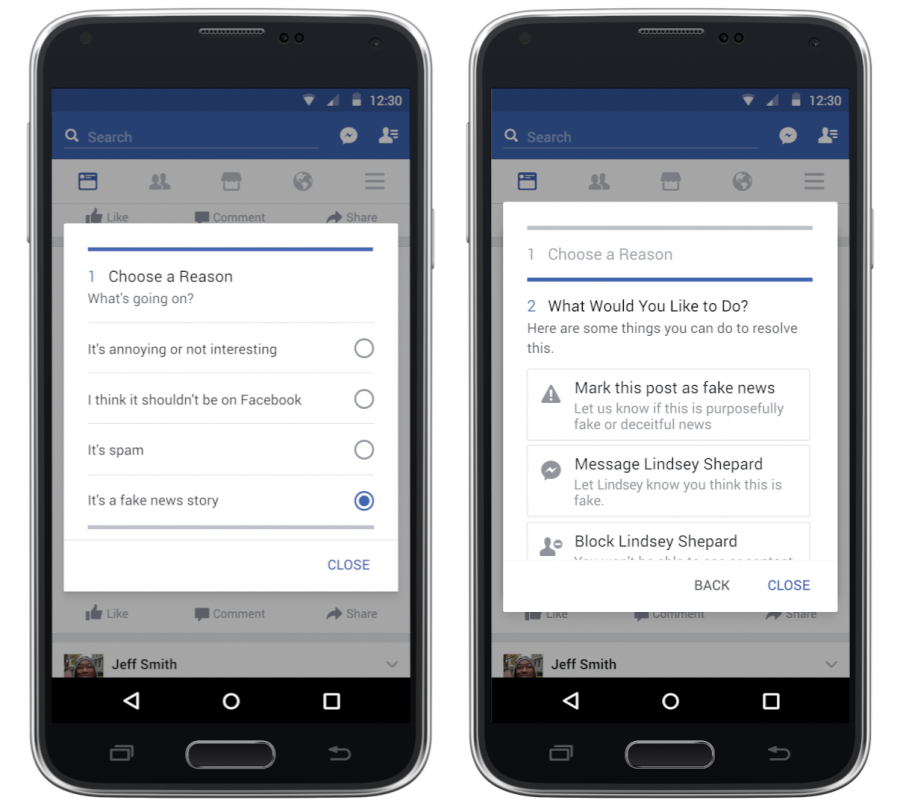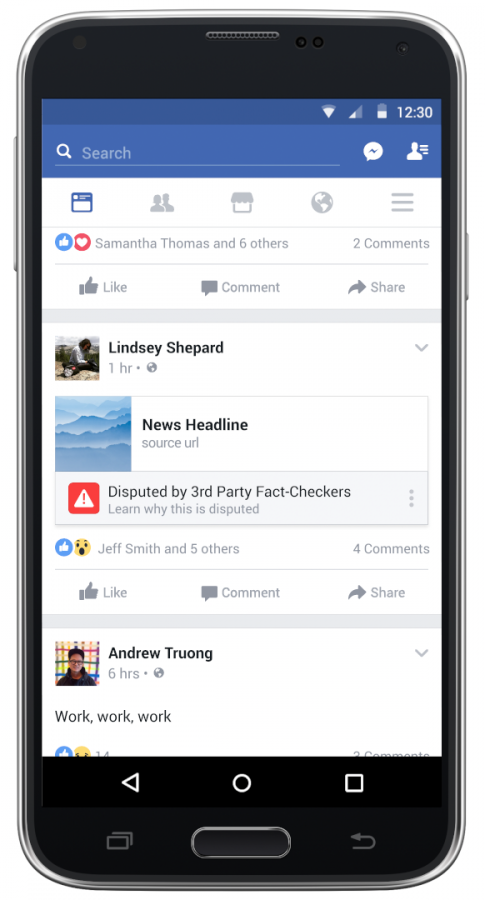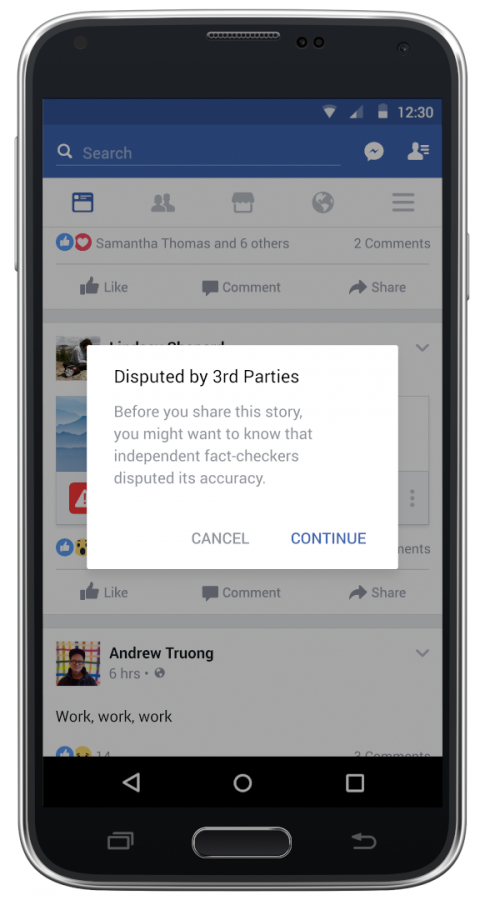
Facebook to Roll Out New Tools to Tackle Fake News
Dec 15 (Reuters) – Facebook Inc said on Thursday it will roll out a number of new tools to prevent fake news stories from spreading on the social media network. The company will make it easier for users to flag fake articles on their News Feed, and will also work with organisations such as fact-checking […]

Dec 15 (Reuters) – Facebook Inc said on Thursday it will roll out a number of new tools to prevent fake news stories from spreading on the social media network.

The company will make it easier for users to flag fake articles on their News Feed, and will also work with organisations such as fact-checking website Snopes, ABC News and the Associated Press to check the authenticity of stories.

Facebook said that if the fact-checking organisations identify a story as fake, it will get flagged as “disputed” and there will be a link to the corresponding article explaining why.
The company said disputed stories may appear lower in its news feed, adding that once a story is flagged, it cannot be promoted.

And if a Facebook user clicks to share a fake news story they will view a notice letting them know.
 The social media company also said it has eliminated the ability of spammers to spoof domain names of real publications. In South Africa several users are fooled into believing and sharing hoax stories by sites like News24-TV and T1mesLive, which in fact have no association with the legitimate News24 and TimesLive media houses.
The social media company also said it has eliminated the ability of spammers to spoof domain names of real publications. In South Africa several users are fooled into believing and sharing hoax stories by sites like News24-TV and T1mesLive, which in fact have no association with the legitimate News24 and TimesLive media houses.
Facebook had faced severe criticism for failing to stem a flood of phoney news articles in the run-up to the U.S. presidential election.
Ahead of the Nov. 8 U.S. election, Facebook users saw fake news reports erroneously alleging that Pope Francis endorsed Donald Trump and that a federal agent who had been investigating Democratic candidate Hillary Clinton was found dead.
In South Africa several ‘hoax’ sites churn out similar stories of dead politicians. A recent one claimed former DA leader Helen Zille had died from cancer. The fake deaths of Archbishop Desmond Tutu and Zimbabwean leader Robert Mugabe are also regularly trotted out by these so-called ‘satire’ sites. All are absolutely untrue.
Facebook has traditionally relied mostly on users to report any offensive posts, which are then checked by Facebook employees against the company’s “community standards”.
(Reporting by Narottam Medhora and Anya George Tharakan in Bengaluru; Editing by Shounak Dasgupta)